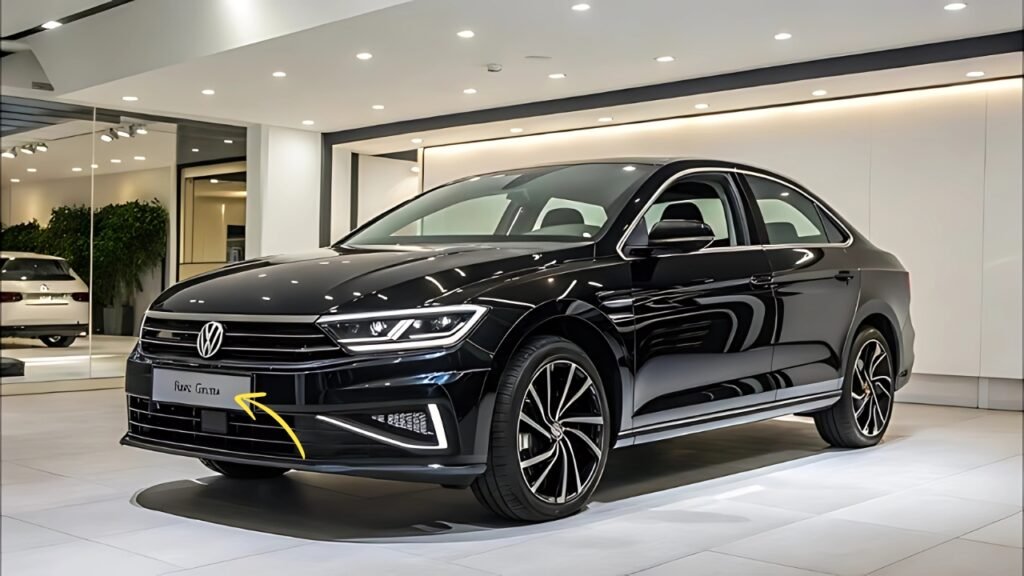Volkswagen Virtus : Three years into its Indian journey, the Volkswagen Virtus has emerged as an unexpected success story in a segment where many predicted doom and gloom. While the mid-size sedan market continues to shrink globally, this German-engineered challenger has quietly carved out a loyal following, proving that buyers still appreciate the fundamentals of good engineering, safety, and driving dynamics.
Safety First, Questions Later
The Virtus made headlines this year, though not always for the reasons Volkswagen would prefer. Two separate recalls affecting thousands of vehicles have brought scrutiny to the brand’s quality control processes. The latest recall in July 2025 affected 961 units manufactured between December 2021 and May 2025, following an earlier recall of over 21,000 vehicles for similar seatbelt-related issues.
The problems center around rear seatbelt assemblies – specifically, potential cracks in the metal base frame and incorrect parts installation that could compromise passenger safety during frontal collisions. While recalls are never ideal, Volkswagen’s proactive approach to addressing these issues demonstrates the company’s commitment to customer safety over PR considerations.
Five-Star Foundation Remains Solid
Despite manufacturing hiccups, the Virtus maintains its impressive 5-star Global NCAP safety rating for both adult and child occupant protection. This achievement places it among India’s safest sedans, with over 40 active and passive safety features working together to create what Volkswagen calls “armour-like protection.”
The safety credentials extend beyond crash tests to include Electronic Stability Control, Hill Hold Control, multiple airbags, and ISOFIX child seat anchors. These features, combined with the car’s high-strength steel construction, continue to reassure buyers even as recall notices arrive in mailboxes.
Performance That Justifies the Premium
Where the Virtus truly shines is in its powertrain options. The dual-engine strategy offers something for everyone: a 1.0-liter TSI delivering 115PS for efficiency-conscious buyers, and a more potent 1.5-liter TSI producing 150PS for those seeking genuine performance.
The smaller engine surprises with its refinement and fuel efficiency, achieving nearly 21 kmpl in real-world conditions. Meanwhile, the 1.5-liter unit transforms the Virtus into a genuinely quick sedan, capable of spirited highway runs while maintaining impressive build quality and ride comfort.

Transmission Choices That Make Sense
Volkswagen’s decision to offer multiple transmission options pays dividends in buyer satisfaction. The 6-speed manual remains crisp and engaging, while the 6-speed torque converter automatic provides smooth urban driving. The crown jewel is the 7-speed DSG dual-clutch unit available with the 1.5-liter engine, delivering lightning-quick shifts that rivals struggle to match.
Market Performance Defies Expectations
Recent sales figures tell an encouraging story. The Virtus achieved its highest-ever monthly sales record of 2,351 units, proving that buyers are willing to pay a premium for European engineering and build quality. This success comes despite pricing that starts at ₹11.56 lakh and extends to ₹19.40 lakh for the top-spec GT Plus Sport variant.
The pricing strategy positions the Virtus as a premium alternative to mainstream offerings like the Honda City and Hyundai Verna, while undercutting luxury sedans significantly. This positioning has created a sweet spot for buyers seeking German engineering without German luxury car pricing.
Competitive Landscape Shifts
The sedan segment’s evolution has worked in the Virtus’s favor. As competitors like the Maruti Ciaz face discontinuation and others struggle with outdated designs, the Virtus’s contemporary styling and advanced features attract buyers who might otherwise consider compact SUVs.
The car’s 521-liter boot – segment-leading – and spacious rear seats address practical family needs while the sporty GT variants cater to enthusiasts seeking driving engagement.
Skoda Slavia is a 5 seater car launch for middle class families
Design Language That Ages Well
The Virtus’s exterior design borrows cues from Volkswagen’s global sedan lineup, creating a timeless aesthetic that avoids the over-styling trap that plagues many competitors. Clean lines, purposeful proportions, and quality fit-and-finish contribute to a premium appearance that justifies the price premium.
Interior quality varies by variant, but higher trims offer genuinely upscale materials and build quality that rivals more expensive alternatives. The 10-inch touchscreen infotainment system, digital instrument cluster, and ventilated seats in top variants create a luxury-like experience.
Engineering Endurance Sets Records
The Virtus proved its engineering prowess dramatically when test vehicles covered over 4,600 kilometers in 24 hours at the Natrax test track, setting multiple India Book of Records. This endurance demonstration showcased the reliability and performance potential of Volkswagen’s TSI engines under extreme conditions.
Such achievements reinforce the brand’s engineering credentials and provide real-world validation of the quality that buyers experience daily.
Volkswagen Virtus Looking Forward
The Volkswagen Virtus represents something increasingly rare in today’s automotive landscape: a sedan that prioritizes driving dynamics, build quality, and safety over flashy features and aggressive pricing. While quality control issues require attention, the fundamental product remains compelling for buyers seeking German engineering at accessible prices.
As the sedan segment continues evolving, the Virtus has positioned itself as the thinking buyer’s choice – offering substance over style, engineering over gimmicks, and long-term satisfaction over short-term savings.
